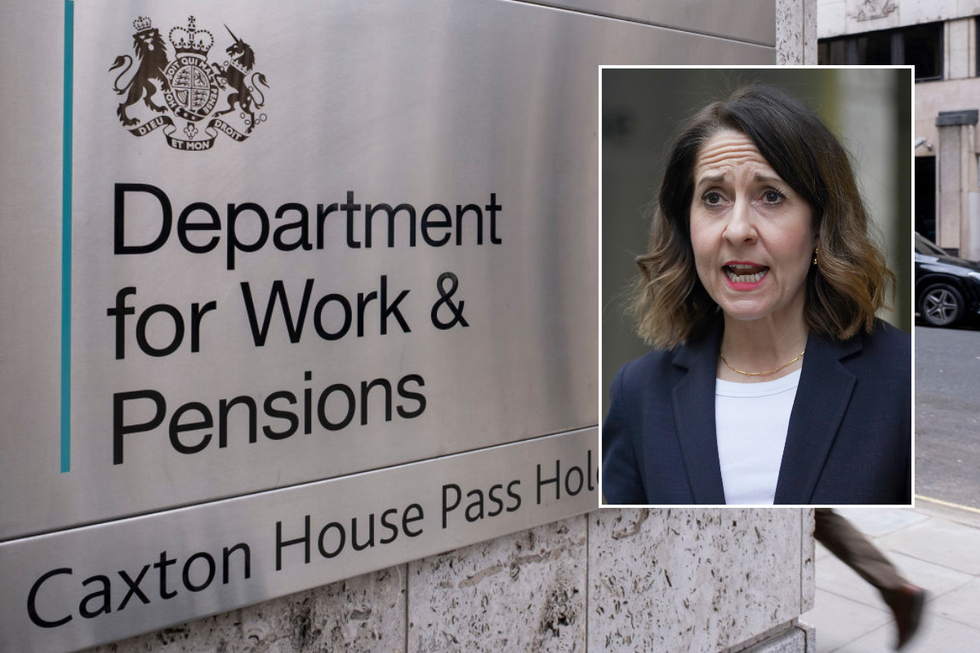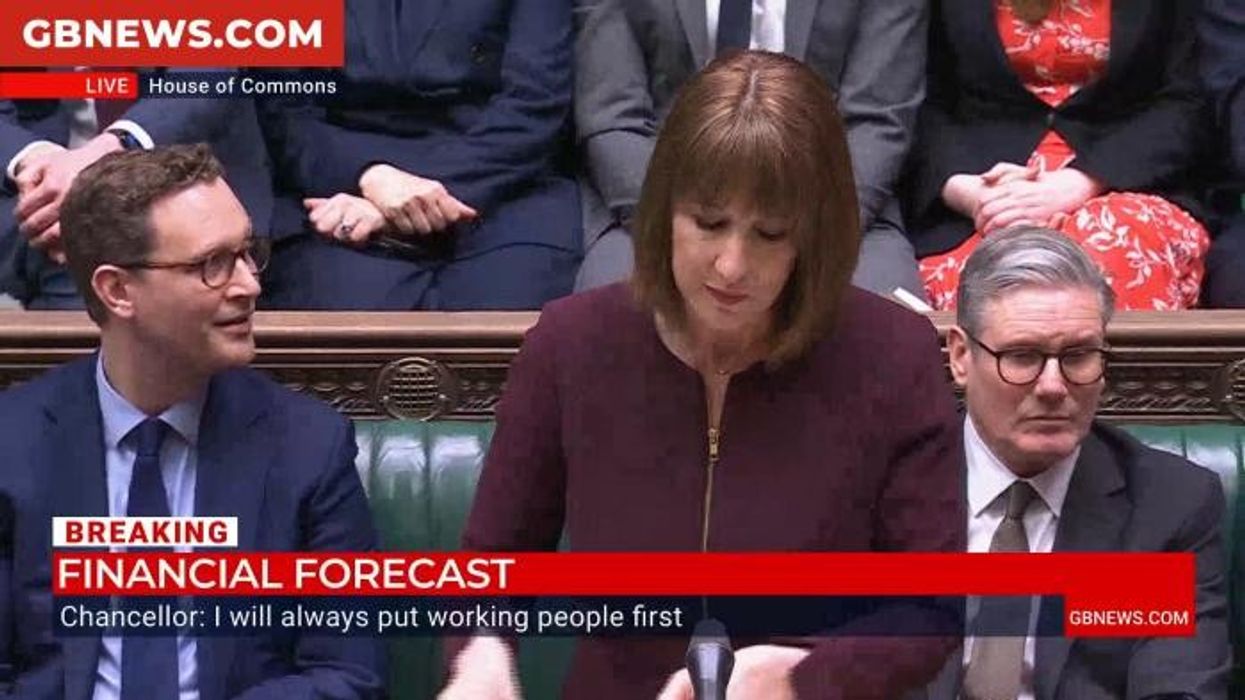DWP benefits reform to spark surge in Britons claiming top level payments with 400,000 extra out of work

Labour is currently facing a backlash from its own MPs over the controversial cuts
Don't Miss
Most Read
Nearly 400,000 more Britons will be judged unfit to work after Work and Pensions Secretary Liz Kendall scrapped Tory welfare reforms.
The decision to undo tighter criteria for sickness benefits means many more will qualify for payments by the end of the decade.
Figures from the Office for Budget Responsibility project three million people will receive the health element of Universal Credit by 2030.
This is 370,000 more than would have been the case had the previous government's reforms been implemented.

Liz Kendall has come under fire for the proposals
|PA/Getty
The reversal has been triggered by Labour ministers scrapping plans by the previous Tory government which would have forced more people with mobility and mental health problems to look for work.
Government sources told The Times that the main reason for the rise was the overhaul reversing planned changes to the work capability assessment proposed by the Conservatives.
These changes had been due to come into effect later this year.
The OBR had previously estimated these would have meant around 450,000 fewer people in the top category of incapacity benefit by 2030.
At present, there are 1.8 million people on the 'limited capability for work or work-related activity' element of universal credit.
They receive £5,000 a year more than jobseekers and are not required to prepare for getting a job.
LATEST DEVELOPMENTS
 Mel Stride said Rachel Reeves had made Britain 'poorer and weaker' | PA
Mel Stride said Rachel Reeves had made Britain 'poorer and weaker' | PAOfficial estimates last autumn suggested this number would increase to 2.6 million by 2030.
Updated estimates in a Government impact assessment now say that figure could top three million.
This comes despite Kendall's welfare overhaul unveiled last month, which was designed to slash £5bn from the benefits bill.
Shadow Chancellor Mel Stride, who developed the Tory blueprint while in government, criticised the decision, saying: "It takes a particular level of incompetence to bring forward a welfare reform plan which leaves more people on out-of-work benefits and fewer people in work."
He added that Labour had scrapped "principled reforms" in favour of "cuts to disability benefits designed purely to save the Chancellor from breaking her fiscal rules."

Co-leader of the Green Party Adrian Ramsay said the decision was 'morally repugnant'
|PA
Green Party co-leader Adrian Ramsay called the decision "morally repugnant", saying the Chancellor had chosen "to take from the most vulnerable to balance her books".
The Office for Budget Responsibility has estimated that 16,000 fewer people will be in the workforce as a result of the reforms.
This is despite Labour insisting that once their £1billion programme to help more return to work has kicked in, overall more people will ultimately be in work.
However, the OBR has warned it has seen no evidence of how the reforms will boost employment. Those claiming the top level benefits will each be entitled to £2,600 a year.
The welfare overhaul has sparked controversy and threats of a backbench rebellion among Labour MPs.
More than 25 Labour MPs have publicly stated they will not back the government when the proposed reforms are voted on in Parliament.

Mayor of Greater Manchester Andy Burnham criticised the move
|PA
At least eight Labour MPs have said they will vote against the reforms, with several more signalling their opposition to the plans.
Those opposing include MPs on the left of the party such as Nadia Whittome, Brian Leishman, Kim Johnson and Richard Burgon.
Greater Manchester Mayor Andy Burnham has also said the government is making "the wrong choice" by restricting eligibility for disability benefit.
A spokeswoman for the DWP told The Times the government would scrap an assessment "which has long been a gateway to a life on benefits".
She added: "Our sweeping reforms will deliver a £1 billion employment support package to genuinely help sick and disabled people into work, alongside rebalancing universal credit payments to deliver a boost for low-income families and disincentivise ill health."











